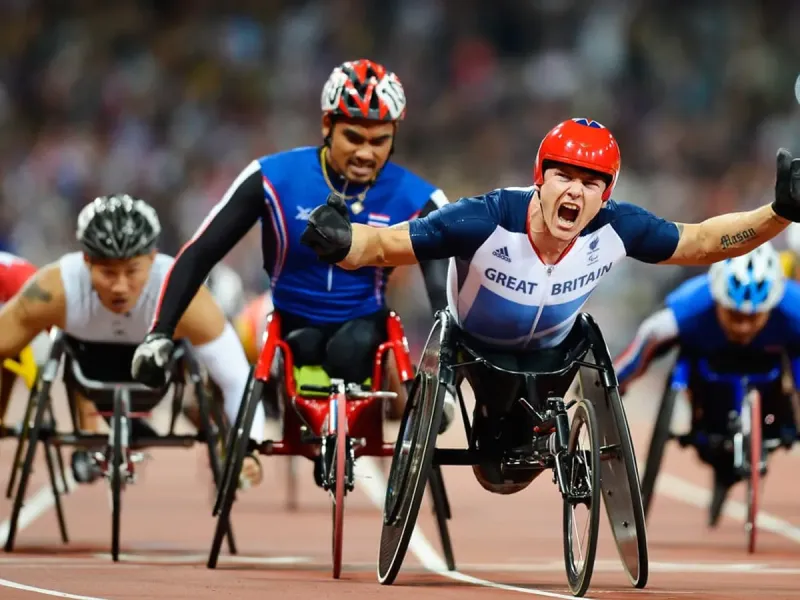People who take frequent daytime naps may be more likely to develop certain cardiovascular issues, new research shows.
According to a study published Monday in Hypertension, a journal from the American Heart Association, napping on a regular basis was associated with a 12% higher risk of developing high blood pressure, and a 24% higher risk of having an ischemic stroke.
"These results are especially interesting since millions of people might enjoy a regular, or even daily nap," the study's corresponding author E. Wang, PhD, MD, a professor and chair in the department of anesthesiology at Xiangya Hospital Central South University, said in a press release.
Read Also: This Is the Biggest Road Race in Africa (Here's How To Join)
But, according to researchers, naps themselves aren't inherently bad; rather, frequent naps may be more of an indication of other issues, like less-than-optimal sleep at night.
"What drives people to nap more during the day? It might be poor sleep at night," Michael Grandner, PhD, director of the sleep and health research program at the University of Arizona, told Health. "People who aren't getting enough sleep, they might be napping more during the day just to make up for lost time. But even people who are getting enough sleep, that sleep may be poor quality."
But how does napping—and ultimately, poor sleep quality—connect with high blood pressure and stroke risk? Here's what experts have to say about how sleep can negatively affect your health, which factors are related to poor sleep, and how to incorporate healthy sleeping and napping habits into your
Poor Sleep Quality and Cardiovascular Disease
For the study, researchers from the Xiangya Hospital Central South University in China sought to examine whether nap frequency could be a potential risk factor for high blood pressure and stroke.
To do that, they used information from the U.K. Biobank, a biomedical database containing anonymized genetic, lifestyle, and health information from more than 500,000 U.K. participants who regularly provided blood, urine, and saliva samples to scientists. Some participants also completed a daytime napping survey.
In excluding people who already had a stroke or high blood pressure before the start of the study, researchers analyzed data from 360,000 participants ages 40 to 69, to determine the association between napping and first-time stroke or high blood pressure diagnoses. The participants labeled their napping routines as "never/rarely," "sometimes," or "usually."
Compared to people who reported never taking a nap, those who said they napped "usually" had a 12% higher risk of developing high blood pressure, and a 24% higher risk of having a stroke. In people younger than 60 years old who were usual nappers, there was a 20% higher risk of developing high blood pressure, compared to people of the same age who were never-nappers. For the most part, people stayed fixed in their napping categories, which means if they identified as a frequent napper once, they would continue to do so.
Researchers also found relatively common ground between usual nappers—they were more likely to be male, had lower education and income levels, and had certain lifestyle factors like cigarette smoking, daily drinking, insomnia, snoring, and identifying as evening people.
But study authors and experts say napping itself isn't necessarily harmful—it's the indication that more frequent naps could mean less restful nighttime sleep.
"Really what the study showed—and this isn't the first time this has been seen—[is] that at a population level, the people who are more likely to be napping during the day, are probably people who are napping because their sleep isn't really good at night," said Grander, who is also a co-author of the AHA's Life's Essentials 8 cardiovascular health score. "And we already know that sleep is a major issue in terms of not just heart health, but also brain health, immune health, and mental health. And sleep plays a role in lots of these different functions"
This link between non-restful sleep and increased health risks is not a new one—a 2021 study found a link between sleep apnea, disruptive snoring, and increased stroke risk. And the Centers for Disease Control and Prevention (CDC) warns that not getting enough sleep at night can lead to heart disease, depression, stroke, and Type 2 diabetes.
Though it's not entirely clear what exactly increases this risk biologically, experts believe some factors may be responsible. According to Virend Somers, MD, PhD, the Alice Sheets Marriott professor of medicine at the Mayo Clinic, people who don't sleep well at night may have higher levels of catecholamines, which are connected to your adrenaline response in the body and can raise blood pressure. Bad sleep can also make it hard for your body to keep blood vessels open and free of clots.
"One of several issues that accompany the higher blood pressures was an impairment in the endothelial function," Dr. Somers, who was not involved in the new research, told Health. "The endothelium is a layer of cells lining the blood vessels that keeps the blood vessel healthy, causing the blood vessels to dilate, it prevents clots from forming inside the blood vessel, [and] generally maintains vascular health."
Study authors also theorize that napping and poor sleep may increase inflammation in the body, or there could be long-term effects of interfering with the body's natural blood pressure rhythm by taking a nap. Depending largely on mental and physical activity, blood pressure rises upon waking, goes through peaks and valleys during the day, only to drop sharply to reach its lowest point during sleep.
Not All Naps Are Likely to Cause Health Risks
Napping is, at face value, not out of the ordinary, and it's unclear just how far reaching these study results could potentially go.
But this study shouldn't necessarily be cause for concern for anybody who enjoys the occasional nap to recharge, according to our experts. There's a difference between napping all the time because you can't make it through the day, or because you're taking a short break.
With this in mind, it's worth noting that study authors identified some limitations in their data, including absence of information on length of naps, and the fact that napping was self-reported, meaning it's possible that the information provided wasn't entirely accurate. The participants were also mainly middle-aged and elderly with European ancestry, so the findings aren't generalizable to a larger, more diverse population.
Napping is also a common cultural practice in many parts of the world—think a siesta in Spain or a riposo in Italy— and it's unlikely that culturally traditional resting periods have the same negative health effects, Grandner and Dr. Somers said, as they're not indicative of population-wide sleep deprivation. Taking a short, 20-to-30 minute nap is not necessarily a bad thing.
"We're biological creatures living in a complicated world doing the best we can to get from one day to the next," Grandner said. "We don't operate at 100% efficiency at all times. We're not a light switch that we turn on, then run, run, run, run until we turn off."
Being well rested—whether from good sleep at night and short naps when we need them—means that we'll think better, be more productive, stay healthier, and feel better overall, Grandner said.
But if napping very frequently is the only way you're feeling rested, then that's probably a sign that there are bigger issues going on. The study, Dr. Somers hopes, should be another indicator to doctors that a person might be experiencing sleep deprivation and higher risks of stroke and high blood pressure.
"If you fall asleep during the daytime—you fall asleep driving, you fall asleep while talking to someone, if you have a high likelihood of falling asleep while working, and you do it frequently—then you have what we call excessive daytime somnolence [sleepiness]," Dr. Somers said. "So while napping itself is not, in and of itself a bad thing. If it's because of an underlying sleep disorder, then you definitely want that sleep disorder evaluated and treated."




